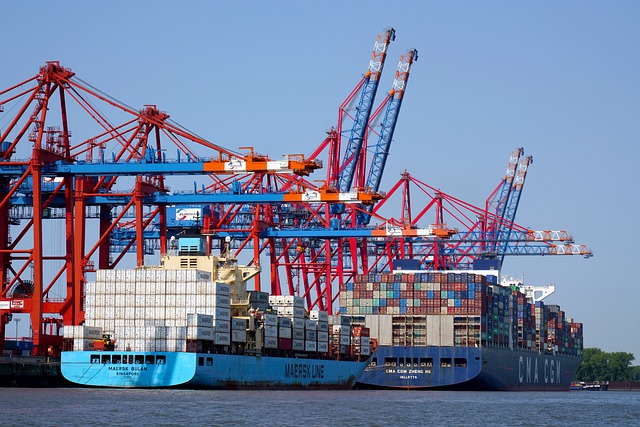Nigeria and the Relevance of ‘Export for Survival’
Nigeria’s economy has relied on oil exports, but with global economic shifts, fluctuating oil prices, and the urgent need for diversification, exporting non-oil products has become a crucial survival strategy. This strategy is essential for economic stability, job creation, and national growth.
The concept of “Export for Survival” in the context of Nigeria refers to the idea that for the nation to thrive economically and ensure sustainable growth, it must increase its focus on exportation. This is especially significant in light of the country’s dependence on oil exports, which has led to an overreliance on a single sector, making Nigeria vulnerable to global market fluctuations, price changes, and external shocks.
The Nigeria Export Promotion Council (NEPC) launched the Export for Survival campaign on November 21, 2022. That year, the campaign took place in the streets of Lagos and Abuja, with NEPC staff and stakeholders engaging in walkathons to raise awareness. The slogan was not just a marketing phrase, it was a call to action, highlighting the urgent need for Nigeria to embrace exports as a pathway to economic security.
However, it serves as a stark reminder that, to navigate economic downturns successfully, Nigeria must increase its exports, reduce trade deficits, and strengthen its currency. The benefits of expanding exports extend beyond economic stability. For industries such as agriculture and manufacturing, exporting can serve as a critical means of ensuring that surplus goods reach global markets rather than going to waste.
A critical issue Nigeria faces today is the persistent depreciation of the naira, largely due to the country’s trade deficit. Nigeria imports significantly more than it exports, resulting in a heavy reliance on foreign currencies such as the U.S. dollar. This demand for foreign exchange exerts pressure on the naira, leading to its continued decline in value. The solution lies in increasing local production to achieve self-sufficiency while tapping into global markets to boost foreign earnings.
Here’s why this concept is highly relevant to Nigeria:
- Economic Stability: The fluctuation of oil prices has often led to economic instability in Nigeria. The “Export for Survival” model encourages economic resilience by spreading risks across multiple sectors. It can ensure more stable growth, reducing the negative impacts of external shocks, like falling oil prices or disruptions in global trade.
- Diversification beyond Oil: Nigeria’s over reliance on crude oil has left the economy vulnerable to external shocks. Expanding into non-oil sectors will create more stable revenue streams which are:
- Agricultural Exports: Nigeria has vast agricultural potential, with products like cocoa, cashew, sesame, shea butter, and ginger offering significant export opportunities. However, to maximize earnings, Nigeria must invest in processing and value addition rather than exporting raw produce.
- Manufacturing: Encouraging the production of textiles, leather goods, furniture, and processed foods will not only reduce dependency on imports but also make Nigerian products competitive in international markets.
- Solid Minerals: Nigeria is rich in minerals like lithium, gold, limestone, and tantalite, which are in high demand globally. With proper policies and investments, the mining sector would become a major contributor to export revenues.
- Creative & Digital Economy: The global popularity of Nigerian music, Nollywood films, and tech services presents an opportunity for exporting intellectual property and digital services, further diversifying the economy.
- Job Creation and Poverty Alleviation: Focusing on export-driven industries would create a wide range of employment opportunities. Agricultural exports, for instance, can help rejuvenate rural economies, provide more jobs, and reduce poverty. Expanding export industries can also foster entrepreneurship, especially in small and medium-sized enterprises (SMEs).
- Enhancing Global Competitiveness: By focusing on improving the quality and quantity of non-oil exports, Nigeria can position itself as a competitive player in the global market. Agricultural products like cocoa, palm oil, and groundnuts are in high demand, as are products in the entertainment and technology industries. A strategic focus on these sectors can increase Nigeria’s presence and influence in international markets.
- Strengthening Export-Oriented Policies: For Nigeria to thrive in global trade, the government must create a business-friendly environment that removes bottlenecks in export processes. Streamlining export documentation, reducing port delays, and improving trade facilitation will enhance competitiveness. Nigeria must also take full advantage of the African Continental Free Trade Area (AfCFTA), which provides access to a 1.3 billion-person market.
- Boosting Foreign Exchange Reserves: Increasing exports in non-oil sectors (agriculture, solid minerals, and manufacturing) helps boost the country’s foreign exchange reserves. This strengthens the naira, reduces the country’s trade deficits, and makes Nigeria less reliant on oil revenue for imports.
- Infrastructure & Logistics: Efficient logistics and infrastructure are critical for a successful export-driven economy. To achieve this, Nigeria must fix its power supply. Unstable electricity increases production costs, making exports less competitive.
For Nigeria to realize its potential, the country needs to diversify its exports, address infrastructure and regulatory issues, and focus on increasing the quality and competitiveness of its products. If these issues are addressed effectively, Nigeria could harness its export potential to foster economic growth, create jobs, and ensure long-term economic stability.
Source: Premium Times

